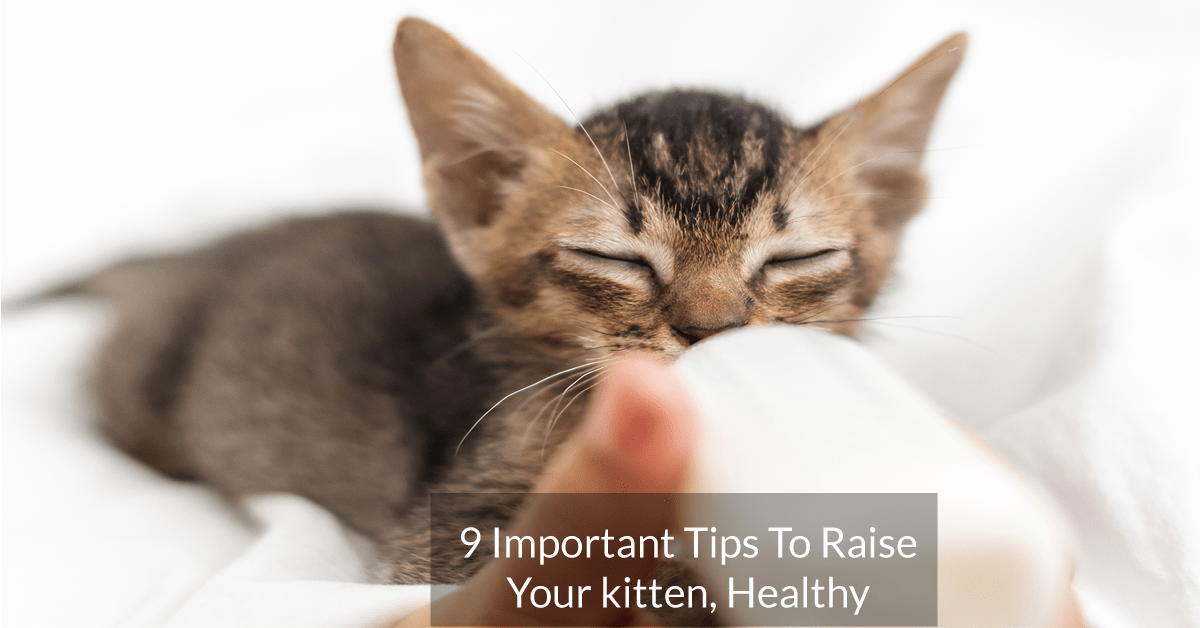As a pet parent, raising a kitten might seem like a difficult task. With MyFurries’ tips on raising your kitten healthy, it is now easier and fun. A healthy kitten is a happy kitten!
‘Fluffy little bundles of joy’. No other words to describe the little beings which keep stealing our hearts time and again. Imagine a mini-bundle of joy aka kitten. With their tiny little paws and melodic meows, they make a perfectly adorable companion. But with a cute adorable kitten, comes the responsibility of raising it healthy. Worry not, MyFurries got everything ready! All you need to know is how to raise your kitten perfectly happy and healthy, right here!
The After Birth:
Have you seen a newborn kitten? With eyes almost closed, crawling and sleeping most of their way through the first week; the wide world waiting to greet them as soon as they open their eyes wide in the first and second weeks. It feels warm, just to imagine!
And just like that in two weeks, they start learning to walk and start playing almost by 4 weeks. Throughout this period the kitten needs nourishment from its mother. Even if you are planning on adopting a kitten experts suggest the right age to bring a kitten home is at least around 8 weeks. It’s best if they are 12-13 weeks old
If you have to take care of a kitten below 10 weeks of age, worry not, let’s get prepared to shower the special needs and treatment required.
1. Bottle-Feeding:
For the first two weeks, the kittens will require bottle feeding every two hours or so which can be stretched after 4 weeks of age. Discuss with your veterinarian about what substitute or kitten milk replacer and how you can feed them
2. Soft blanket and warm hugs:
Kittens won’t be able to regulate body temperature on their own before 8 weeks of age. Making a cosy bed with soft warm blankets would go a long way in making them feel warm. If you feel your kitten needs a bit of warmth, consider placing a warm bottle surrounded by blankets, for heating pads might hurt a developing kitten. 3. Helping them excrete:
A neonatal kitten might need help excreting which the mother would normally take care of with its tongue. Given the mother is not available, you might need some warm and damp cotton balls to gently squeeze the areas of excretion, helping the kitten to pee and poop almost after every meal.
4. Frequent Visits to Vets:
A visit to the vet is an important part of raising your kitten, especially in the first four weeks. Depending on your kitten’s progress the vet might suggest regularly scheduled visits.
Tips to raise young and healthy kittens:
4-6 weeks:
- Kittens develop milk teeth, hence ready to start the transition from milk only to solid foods. Make sure the diet is rich in protein, fibre and easily digestible for their developing digestive system.
- A night of Sound sleep is essential to strengthening the developing immune system. Make sure the bed is made comfy, cosy and warm.
- By 6 weeks, kittens would start to develop adult motor abilities. Probably, the best time to start your training, moulding their behaviours from the start.
- Treat them with toys and use them to train your kitten as it also helps in the simulation
- As the growth spurt kicks in the kitten would start exploring on its own. It’s best to have your home kitten-proofed. Extra-surveillance to monitor your inquisitive kitten from wandering off on its adventures.
- Regular human interactions and acts of affection at this time, play a key role in developing your kitten’s confidence.
2-4 months:
- As the kitten reaches eight weeks of age, consider visiting your vet and starting with the vaccinations. The time is just ideal.
- Socialization also comes into play after 2 months. If you are wondering when to expose your kitten to other pets gradually and also establish a loving and trusting relationship with you, now is a great time to do so.
- Kittens enter their adolescence typically from 4-6 months of age, attaining sexual maturity. This might involve some changes in behavioural patterns including spraying and yowling. Discuss with your vet about spaying or neutering the cat to avoid such developments and further reducing certain health risks.
A home filled with love, a life full of happiness and health. And this is the best possible gift you can give your kitten. For more information on cat vaccination and health, check out MyFurries blog.



